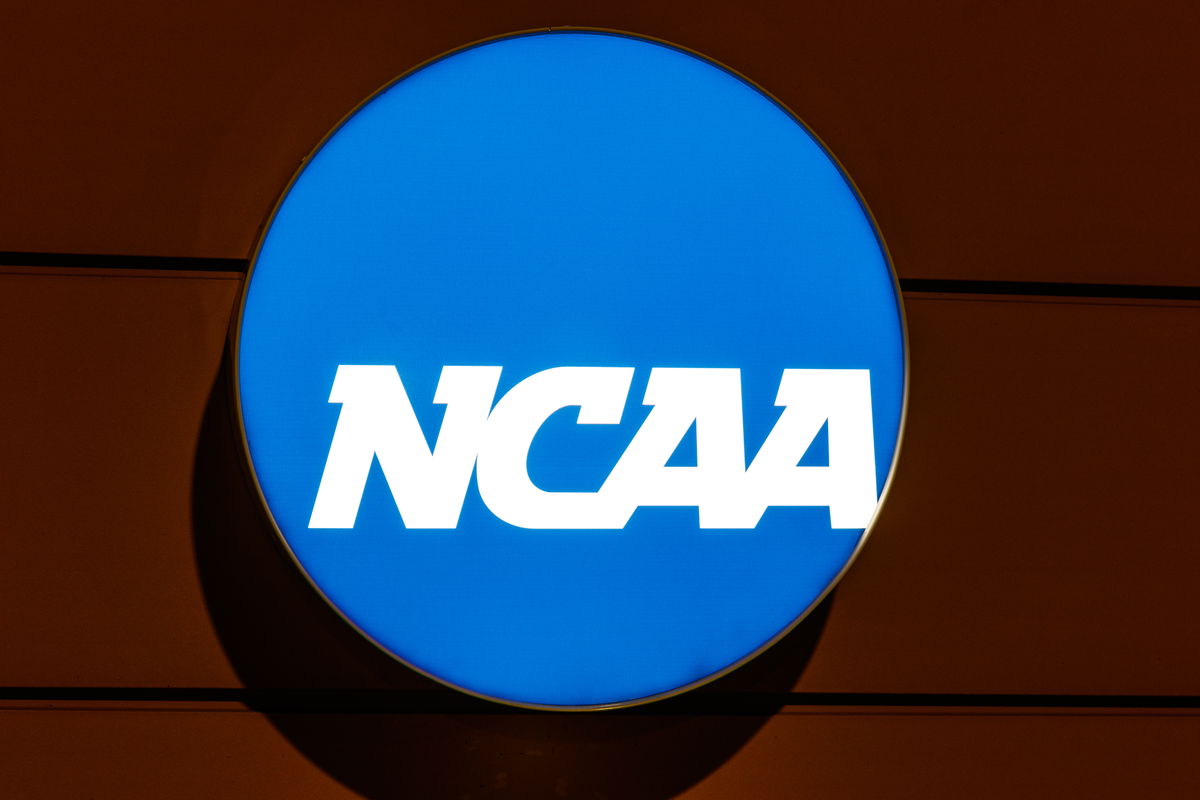
Imago
NCAA Headquarters. The National Collegiate Athletic Association regulates athletic programs of many colleges and universities I, Indianapolis – Circa: March 2019: NCAA Headquarters. The National Collegiate Athletic Association regulates athletic programs of many colleges and universities I

Imago
NCAA Headquarters. The National Collegiate Athletic Association regulates athletic programs of many colleges and universities I, Indianapolis – Circa: March 2019: NCAA Headquarters. The National Collegiate Athletic Association regulates athletic programs of many colleges and universities I
The changing landscape of college football has meant that fans now have increased access to athletes. There has been an upside in the form of NIL value, but the downside, predictably, comes in the form of online harassment. An NCAA study released in October last year revealed that 12% of online abuse faced by student-athletes was related to sports betting. That figure increased to 19% in the case of men’s football.
Watch What’s Trending Now!
Some of these instances involve sports fans and bettors “sending unwanted payment requests to college football players asking to be financially compensated…” The athlete’s fault? The fans bet on them. Former Auburn quarterback Payton Thorne revealed last year how he got requests from angry bettors. “They’re definitely not sending cash. It’s funny. When they lose money, they want their money back. But when they win money on a parlay, no one’s ever sent me any of the money,” Thorne said.
At the time of the release of the report, NCAA President Charlie Baker had urged fans and social media companies to do better. Specifically because, as per Baker, “Student-athletes come to college hoping to fulfill their athletic and academic dreams…” Now, the NCAA and Venmo (owned by PayPal) have announced a partnership to tackle sports-betting-related abuse.
ADVERTISEMENT
As part of the partnership, Venmo is set to introduce a dedicated hotline where student-athletes can flag instances of harassment and abuse on its app. The NCAA will send a best practices guide from Venmo to student athletes so that they can take caution on the platform. Venmo will also be monitoring athletes’ accounts “to help mitigate an influx of requests based on game performance.” Lastly, the platform will also directly interact with athletes to educate them about the problem.
PayPal SVP David Szuchman said in a press release, “While unwanted interactions to athletes make up an extremely small percentage of transactions on Venmo, even a small number of these incidents is unacceptable.”
Szuchman, who is also the Head of Global Financial Crime and Customer Protection for the company, added, “The safety and security of our users remain our highest priority. Harassment or abuse of any kind is not tolerated on the platform, and strict action is taken against users who violate our policies. Through these measures, we are taking decisive steps to help prevent the misuse of our platform and ensure all our users feel protected when they use Venmo.”
ADVERTISEMENT
NEW: The NCAA and Venmo have announced a partnership to combat harassment of college athletes❌https://t.co/WI1Hfx68Dr pic.twitter.com/358P4r1zAn
— On3 (@On3sports) August 26, 2025
NCAA President Charlie Baker also reiterated that the harassment faced by student-athletes on online platforms is unacceptable. He said, “We applaud Venmo for taking action, and we need more social media companies and online platforms to do the same. Several states have passed laws to crack down on this behavior to protect student-athletes, and we hope more do the same because stopping this abuse requires action on multiple fronts.”
ADVERTISEMENT
ADVERTISEMENT
ADVERTISEMENT
ADVERTISEMENT



